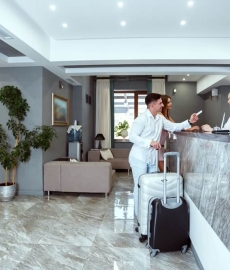What You Need to Know About Cabinet Maker Insurance
Posted on May 14, 2020 | by | Posted in Insurance
Having an eye for detail is important if you wish to create masterful woodwork. Along with proper skills and training, it takes years of experience to become a professional cabinet maker. But even the greatest cabinet-makers are prone to experiencing a few hiccups here and there and the risks that come from this type of work can spell disaster if not managed properly. From damaging a client’s property to having your tools nicked or stolen, a lot can go wrong when you’re in the cabinet-making industry.
This is where cabinet maker insurance comes into play. By obtaining the right type of insurance, you can protect yourself from financial losses that come from sudden mishaps or unfortunate events. This article will cover everything you need to know about cabinet maker insurance to help secure your business from financial hardships.
Why you need cabinet maker insurance
Being in the cabinet-making business is very challenging. You help customers select the right hardware, talk to suppliers in sourcing the best base materials, and even create custom cabinet designs on your own. Working as a cabinet maker can be very rewarding, but only if you have the right insurance in place. If you don’t have the right type of insurance, you can potentially face financial difficulties down the road.
For example, if a customer accidentally slips while inside your business premises or your sign gets damaged by a rough storm, you’ll have to reach for your pockets and pay for any expenses as a result (i.e. medical bills or repairs). But if you have the appropriate types and amounts of insurance, you don’t have to worry about paying for anything as the insurance will cover it for you. Here are several types of insurance that cabinet makers may need:
General liability insurance
General liability insurance protects cabinet makers from common pitfalls and hazards. Say a customer walks into the cabinet making area and they get injured accidentally. As a business owner, it is your legal responsibility to maintain a safe environment for your customers and if you fail in that responsibility, you can be held financially liable. General liability coverage safeguards you from such instances and absorbs any expenses or claims by customers who get injured while at the business site. Liability will also cover ant damage/ or injury caused at your clients premises
Worker’s compensation insurance
If you employ staff as cabinet makers, you are required to provide worker’s compensation insurance. This type of insurance covers any medical costs for employees who get injured on the job. Not only does it take off the financial burden of rehabilitation to your shoulders, but it also ensures that your employees receive proper, timely medical services to continue providing for their families. The coverage can also be arranged in a way that covers travelling employees on behalf of your business.
Business Insurance
A business insurance provides the same protection as general liability insurance, but with the added benefit of protecting your physical assets.
Designed to cover repairs and/or replacements for property damage resulting in storms, floods, or other natural disasters. You can also configure this policy to safeguard you from financial losses brought about by theft or lost items. Business insurance is crucial to your business as any significant damage to buildings, structures, and property can cause business interruption and loss of profit.
Motor Vehicle insurance
Having your business motor vehicle’s insured can protect both you, your employees and the other parties involved in a accident – you can choose from comprehensive, third party fire and theft and third party only











